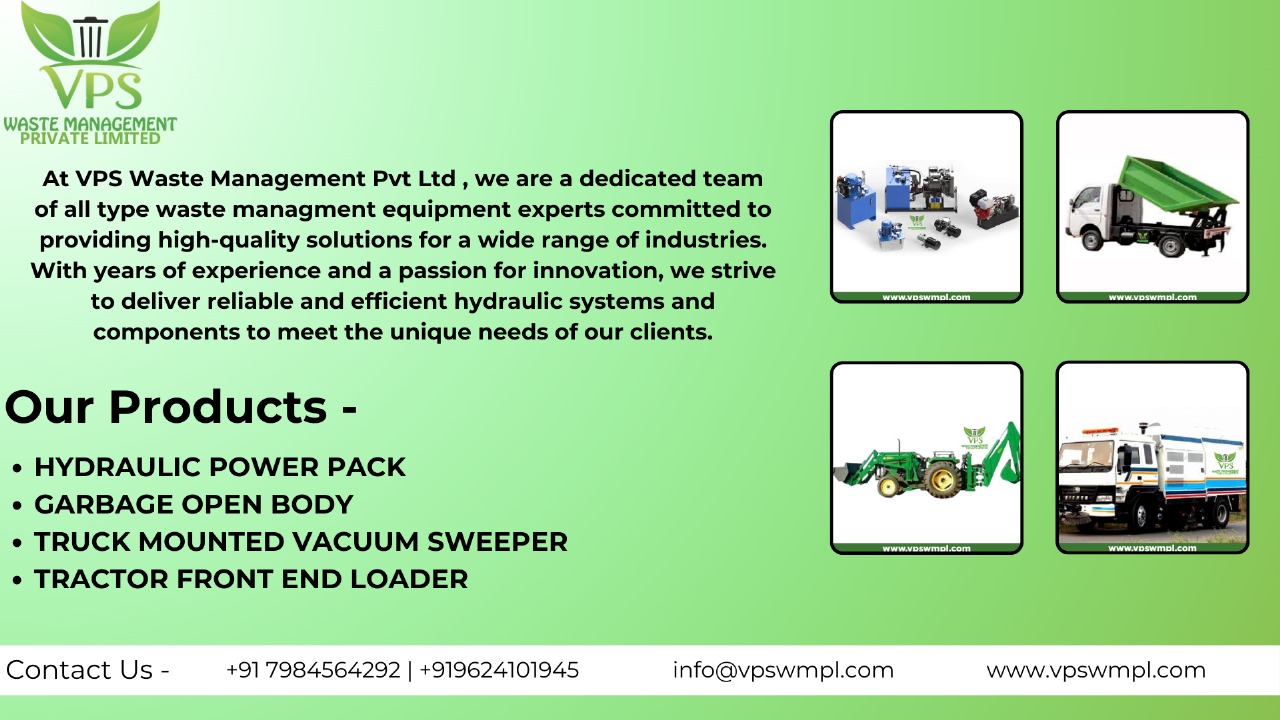Hydraulic System
A hydraulicsystem is a mechanical system that uses pressurized hydraulic fluid
to perform work. It operates based on Pascal's Law, which states that
pressure applied to a fluid in a closed system is transmitted equally in all
directions. Hydraulic systems consist of key components like a hydraulic
pump, fluid reservoir, actuators (cylinders or motors), valves,
and hoses or pipes. These systems are capable of transmitting large
amounts of power through small tubes and with precise control,
making them essential in industries that
Top 10 FAQs of Hydraulic System
- What is a hydraulic system?
A hydraulic system uses fluid power to transmit and control energy for performing mechanical work. - What fluid is used in
hydraulic systems?
Common fluids include mineral oil, synthetic hydraulic oil, or water-based fluids, depending on the application. - How does a hydraulic system
work?
A hydraulic pump moves fluid through a closed loop, creating pressure that drives actuators (cylinders/motors) to perform work. - What are the main components
of a hydraulic system?
Hydraulic pump, reservoir, actuators, valves, filters, hoses, and control units. - Where are hydraulic systems
used?
In excavators, airplanes, forklifts, presses, automotive brakes, and industrial machinery. - What are the types of
hydraulic systems?
Open-loop systems (fluid returns to the tank) and closed-loop systems (fluid circulates continuously). - What are the advantages of
using hydraulics over electrical systems?
Higher force output, better power-to-weight ratio, smoother motion, and overload protection. - Are hydraulic systems easy to
maintain?
Yes, with regular fluid checks, filter replacements, and system inspections, they are relatively easy to maintain. - Can hydraulic systems be
automated?
Yes, they can be fully automated using PLC-based electro-hydraulic control systems. - What causes failure in
hydraulic systems?
Common causes include fluid contamination, leaks, seal failure, and overheating.
Applications of Hydraulic System
- Construction Equipment (e.g., bulldozers,
excavators, backhoes)
- Industrial Machinery (e.g., hydraulic presses,
injection molding machines)
- Aviation (e.g., landing gear, flight
control surfaces)
- Agricultural Equipment (e.g., harvesters,
tractors, plows)
- Marine Industry (e.g., steering, winches,
deck cranes)
- Automotive (e.g., power steering,
braking systems, suspension)
- Mining Equipment (e.g., drills, loaders, crushers)
- Material Handling (e.g., forklifts, scissor
lifts)
- Railway Systems (e.g., coupling controls,
braking systems)
- Renewable Energy (e.g., hydraulic pitch
systems in wind turbines)
Benefits of Hydraulic System
- High Power Output – Delivers strong force and
torque for heavy-duty tasks.
- Compact Design – High power-to-size ratio
makes it suitable for tight spaces.
- Smooth and Precise Motion
Control –
Ideal for lifting, lowering, and rotating operations.
- Versatile Applications – Can be used in mobile,
industrial, and aerospace settings.
- Reliable and Durable – Designed for rugged
environments and continuous operation.
- Easy Force Multiplication – Requires minimal input to
achieve significant output force.
- Safe Overload Protection – System can be equipped
with relief valves to avoid damage.
- Efficiency in Power
Transmission –
Minimal loss of energy over distances.
- Automation-Ready – Integrates seamlessly
with sensors, controls, and PLCs.
- Environment Adaptability – Performs well in extreme
temperatures and pressures.
Contact us
more details:
Call: +91 7984564292 +919624101945
Email: vpswmpl@gmail.com info@vpswmpl.com
Address: Ahmedabad Office : Shed No. B-21, Shree Mahalaxmi Estate, Wandervat Talav,
Near Shankeshwar Estate, GIDC Vatva, Ahmedabad - 382440, Gujarat, INDIA.

